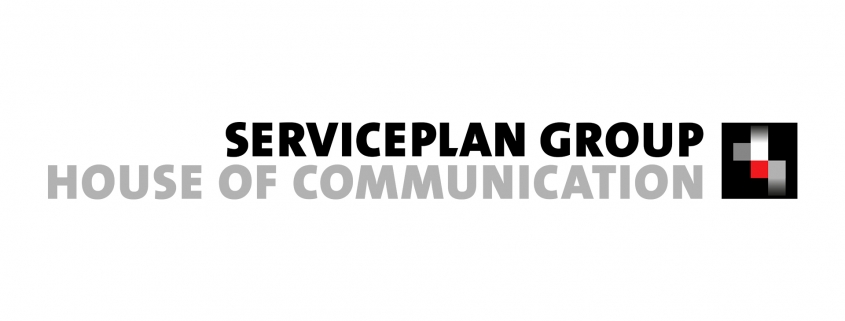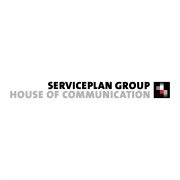- Millennials in the Middle East are mostly ignored! - 27. October 2017
- Trends 2017 from the Middle East - 19. December 2016
- On integration we will stand - 1. December 2016
- A Thousand and One Tales of Marketing from the Middle East - 13. May 2015
- Industry Trends 2014 from Serviceplan Middle East - 14. February 2014
- On the road #5: Dubai (2) - 4. April 2013
Yes, we are the stuff that legends are made of. And no, you don’t have to hold your horses; in fact, you’ll need them as I take you through 1,001 Tales of Arabian Marketing myths and urban legends in the Middle East.
Much has been written and much has been said about it, but so far, very little attempt has been made to simplify the stuff that marketing legends in the Middle East are made of. Still, one too many investors are left unaware of the many intricacies involved in communicating to Arab Muslims, for instance; or of the “do’s” and “dont’s” associated with understanding a region that has in fact more economic than political stories to tell than most international news rooms would have it.
So here’s a quick run-down of some Arabian tales you just might find useful in considering a brand venture into this emerging region of global affluents and digital millenials.
Urban Legend #1 | The Middle East*, known as the Arab region, is a homogeneous market. Myth, of course, as it has three main cultural groups and two geo-economic clusters.
The three cultural groups are led by the predominantly Arab Markets of Saudi Arabia, Kuwait, and Oman, among others, which are considered to be strongly traditional with impregnable traditions and strong family ties.
Then we have the multicultural markets like the UAE, Qatar, and to some extent, Bahrain, with high percentages of expatriate populations, and are earmarked by modern luxury. Last of these cultural groups are the Levant markets of Lebanon, Jordan, Palestine and Syria that have a very Euro-Mediterranean feel to them. Compared to a predominantly Arab region like the GCC, the Levant region is where we see a celebration of commonalities and a transcending of differences between European and Mediterranean cultures. Even the topography of the region is more European than the GCC which is predominantly made up of desert lands. Now barring the war that is happening in Syria right now, Syria’s Euro-Mediterranean roots remains.
Geo-economic clusters are the easiest to remember. GCC or the Gulf Cooperation Council is a political and economic confederation of six countries namely Bahrain, Kuwait, Oman, Qatar, Saudi Arabia, and the United Arab Emirates. As a result of this cooperation, foreign direct investment in the region has become an integral economic booster in what has always been known as an oil-rich and oil-dependent region.
The Levant markets have become more globalized and a lot more integrated with its Arabic roots, and while political instability may seem to be an underlying thread, measures of economic strengthening and stability, along with long-term developments are largely underway. These are thanks, in part, to a pool of highly and even globally-educated younger generation who are ever more keen to keep in step with the progress of its neighboring GCC countries.
Urban Legend #2 | Despite common misconception, an Islamic lifestyle is neither intrinsically anti-western nor anti-American. As a matter of fact, a growing number of Muslim consumers aspire to emulate an international (western) suburban lifestyle. Without necessarily deserting their Bedouin roots, Arab families are now adapting a global-minded lifestyle, with most young Arabs seeking higher education in Europe and the Americas.
Even as they lean towards western-style lifestyles, many increasingly make choices that re-assert their identity as Muslims and their respect for Islamic principles. As such, Sharia-oriented business models form core of their product and service preferences.
Urban Legend #3 | Communicating to Arabs is the same as communicating to Muslims. Wrong. There is an undeniable distinction between Arabs (or the Arab world) & Muslims (or the Muslim world.) Arabic Muslims come from the Arabian Gulf and, compared to other Muslim regions, they reflect more Western ideas and tremendous wealth.
Even the geography and topography of their region speak well of the Arab Muslims who actually represent a highly developed culture and civilization where modern cities mingle with ancient ones. Oil as well as infrastructure and modern progress and tourism has catapulted most Arab Muslims to their global wealth to date.
Urban Legend #4 | Marketing to Arabs is marketing to an aging population of forefathers and their current heirs. This, I say, is a big misnomer. There is a new and powerfully emerging new Arab Muslim consumer today. The Arab millennials or the Arab digital generation, is dominated by young consumers who are the future of Arab and Muslim consumption. Currently, more than half of the population of Arab countries are under the age of 25, now representing more than 11 per cent of the world population.
Interestingly enough, these Millennials are growing into a hugely different world to the generation of their immediate families. Their beliefs, their concerns, their expectations, and their aspirations are shaped by their life experiences which have not only seen the recent Arab Springs, but have witnessed a global population that has come to respect the rapid progress in their region – progress that took decades for most first world economies to achieve.
While core religious values and inclinations remain the same across the geo-economic clusters and across generations, the Millennials’ contemporary concerns and expectations pose a whole new slew of challenges and opportunities to marketers seeking to reach out to an outspoken, digitally-connected consumer segment.
Urban Legend #5 | Business is strictly business in the Middle East. You were warned. Business and personal friendships are one and the same in this highly-relational region, and Arabs generally prefer to do business with people they know, they like and they trust. Speeding up introductions to get straight into business dialogues might just get you into some bit of a bind. Small talk is more than just a courtesy; it is a way of finding out whether you would be a suitable business partner.
I say take time to engage in conversation, both genuinely and enthusiastically. Sincerely inquiring about family members and their well being, and having a few stories in your back pocket to break the ice are always sure-fire ways to get business meetings off to a fiery start.
These are but 5 of the 1,001 tales that we, a team of more than 14 nationalities in our Dubai Offices, are eager to share with you next time we meet…. over a pot of Arabic coffee and some dates maybe?
*The term “Middle East” has many different interpretations (politically and economically) in terms of which countries are included and which are not. At Serviceplan Middle East, we cater to the following markets:
Bahrain, Saudi Arabia, Kuwait, United Arab Emirates, Oman, Palestine, Qatar, Jordan, Syria, Lebanon, Iraq, Yemen.



